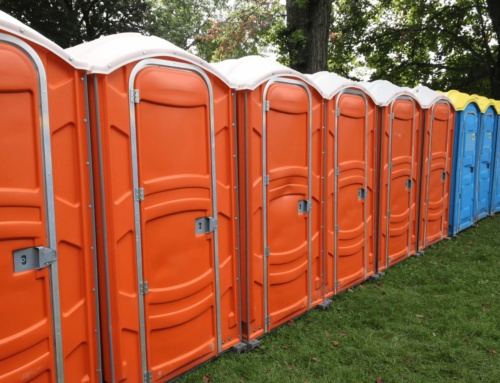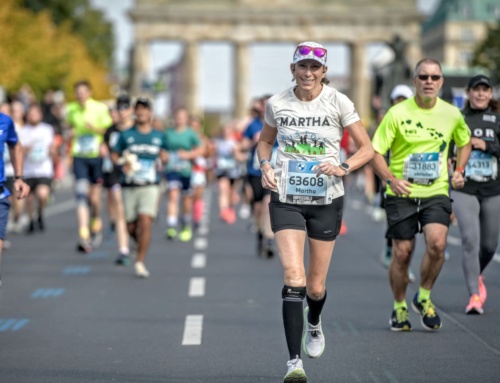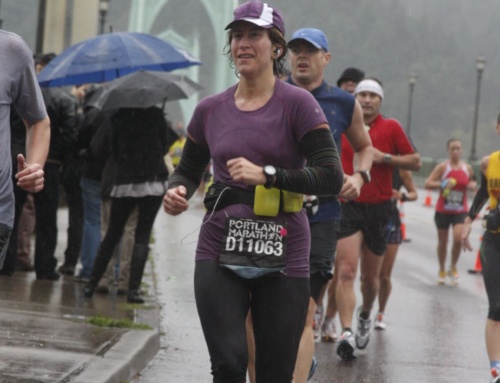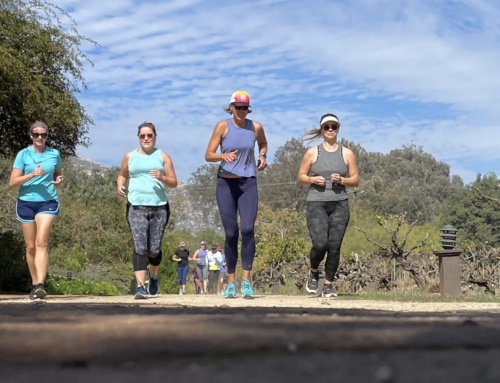Five Tips for Running in the Heat and Humidity
Walk out of any freezingly air-conditioned place in Savannah — airport, hotel, restaurant — into the real world, and BAM! You’re smacked with a steamroom-like wall of heat and humidity. Whoa. Just wait until you try to run.
My BF, Rick, starts a new job in downtown Savannah on July 9. (Yay! One of us needs a real job.) This weekend, we traveled there from our homes in New Jersey on a fact-finding mission to scout out real estate, neighborhoods, pools (he recently started with a masters swim program), a congregation (for my benefit), and the local running club. And the best barbecue, biscuits, low-country boil, beer, and ice cream. (Duh.)
[Important sidenote: Rick is relocating. It may take me a while, as I have a rising ninth grader and an unenthusiastic Ex, whose legal permission to move across state lines I require. Life is complicated.]

Rick (with real estate agent) indulges Southern Gentleman fantasy of house with columns (which he is NOT buying!).
I don’t have to tell you that Savannah is hot and humid. It sits at sea level just a few miles inland on the Georgia coast. While we were there, it was 78 degrees, and 95% humidity at 7 a.m. Every. Single. Day.
When you run in the heat, your body sweats to cool you down. Humidity impedes your body’s ability to dissipate heat, because your sweat doesn’t evaporate. The moisture of humidity also makes it harder to breathe, which means your muscles aren’t getting the oxygen they need to power your stride.
In layman’s terms, what happens when you try to run in hot and humid Savannah is: your body goes WHOA! What are you doing? Stop that this instant! Let’s go for ice cream, or maybe a cold beer. If you persist in this inexplicable exertion, I shall unleash a bucket of stinging salty sweat into your eyes so you can no longer read the street signs. Heh.
When Deena Kastor was training for the 2004 Olympic Marathon, in Athens, Greece, which would take place in the high heat and humidity of August, she prepared for the conditions by running in a long-sleeve black shirt, black tights, and black cap. Full-body Saran Wrapping would’ve provided a better simulation.
Conventional wisdom says you acclimate to heat and humidity within a couple of weeks. But ask long-time residents and members of the Savannah Striders Running Club that question and you get a different answer.

Ribs, collard greens, and red rice from Wall’s BBQ (est. 1963) are a good way to replenish sodium lost through sweaty runs. Right?
Is it ever NOT humid in Savannah? No. The runners shake their heads readily, vigorously, decisively. It is never NOT humid in Savannah. It is always humid.
Oh, okay, but you get used to it, right?
No, no, no. More ready, vigorous, decisive head-shaking. You don’t ever get used to running in this humidity.
So how do you deal with it?
These five tips came with help from the Savannah Striders Running Club. Join them when you’re in town!

Savannah Striders’ Saturday morning run at Coffee Bluff Marina: Rick and I are far right (and in back)
1. Run as early as you can stand to
The Savannah Striders’ weekend runs start at 7 a.m. In July, the Sunday run will move to 6:30. During the week, members meet at 5:30 a.m. For many mothers—especially the teachers among us—that early start is NBD.
But what about running in the early evening, when the humidity is lower? The problem with THAT is that the roads are still radiating all the heat they absorbed during the day. At the 6 p.m. start of the Athens Olympic Marathon, the roads radiated 100 degree heat. Yikes.
2. Pick a shady route
Many of Savannah’s streets are shaded by classic Spanish-moss-draped oak trees. (See Rick’s fantasy house above.) The brick walk along the river is not. On our very first run in Savannah, Rick and I felt like we were motoring in our run through town and by the waterfront, but Garmin told us we were barely managing a 12-minute-per-mile pace. Oof.

“Do you get used to this humidity?” I asked Cori (in pink), mom of a 4-year-old and 6-month-old. “Nope,” she said. “Never.”
3. Drink a lot (+ electrolytes)
“You learn where all the water fountains are,” says Savannah Strider Cori, an audiologist and mother of two.
You can stash a bottle and do loops or carry a hand-held. (I use a Nathan flask.) The American College of Sports Medicine recommends three to six ounces of water every 15 to 20 minutes.
Related: Remember your electrolytes. Rick and I had to stop by the local Fleet Feet to get the NUUN we’d forgotten to pack.
On runs longer than an hour, you need to replenish sodium, potassium, magnesium, and other minerals lost through sweat. Lauren Antonucci, owner of Nutrition Energy, and a certified sports dietician on the New York City Marathon nutrition team, recommends 750 milligrams of sodium per 1 liter (or about 33 ounces) of fluid. Read your labels: Many sports drinks we rely on for carbs don’t contain that much sodium.
4. Determine your sweat rate
If you really want to know exactly how much you need to drink when you run, you can determine your own personal sweat rate. This is also a fun way to pretend like you’ve lost weight. Whee!
To do this, weigh yourself (nude) before and after an easy one-hour run in which you don’t drink any fluids. Every pound you lose is equivalent to 16 ounces you need to replace. So if you lose two pounds during a one-hour run, you know you need to drink 32 ounces of liquids for every hour of running. (If you drink during your sweat-rate test, simply add those ounces to your needs.)

Crawfish says, Go Loco Slow! (That’s low country slow to all y’all; from Tybee Island’s famous Crab Shack)
5. Know you’ll slow
When it’s hot and humid, especially when you’re not used to it, you’re going to slow down. It’s just a fact. Speaking from recent anecdotal experience, a 4.5-mile run in sudden heat/humidity feels like a 10-mile run in less-oppressive conditions. (Beer, barbecue, and not enough sleep exacerbate the effects, according to one recent DIY study. Alas.)
How slow should you go? Your body will let you know. Rick and I struggled to maintain contact with a 10-minute-per-mile group on a 5-ish mile run with the Savannah Striders. That night my calf muscles were as twitchy as if I’d run twice the distance.
For a more scientific answer, your pace will slow anywhere from 5% to 15%, depending on the dewpoint, which measures how much moisture is in the air. When the dewpoint is over 65 degrees, your run is gonna feel harder. (You’ll find the dewpoint on your weather app.)
Whether or not you ever totally acclimate to high heat and humidity, you do get used to dealing with it. Deena Kastor did: She took home a bronze medal from the 2004 Olympic Marathon. Pretty sweet.
Either way, it will make you a stronger runner come fall when the humidity drops. Though if you live in Savannah (Hi Rick!), or another similarly moisture-prone area, you might have to come visit me in the Northeast for a cooler, drier, faster run.






So I had one of these hot humid runs on Sunday…and I did all the right things, yet I succumbed. Aayyyy!
Southern summers make stronger runners! I’m in NC so our humidity is not quite as oppressive as Savannah (like 0.000001% less oppressive lol) but I agree with the tips the locals gave you. A few others I’ll add: in the summertime, choose to train during the heat or the humidity. NOT BOTH. I’ve found it easier to tolerate the increased humidity in the early mornings (tip #1 above) vs the intense heat in the evenings. Even after the sun has gone down and the humidity has lowered (marginally) the heat makes it feel like there is no air to breathe at all. If you like music during your runs, try listening to Christmas music and visualize how cold your hands are while running in January! LOL it actually helps, though. Mind over matter. Lastly, visualize how speedy you’ll be come fall when the humidity finally breaks somewhat. It’s a lot like training at altitude and then racing at sea level. Welcome to the South!
I absolutely love all your blog posts!!! I adore your writing style and all the useful and practical nuggets of wisdom you dispense. Please keep ’em coming!
Thank you SO much for this timely article. Training for my first marathon in the NC heat and humidity. It can be brutal! Race is in San Francisco at the end of July so I’m hoping this hot weather training translates to a cool and foggy race day in Northern CA. It’s what I’m visualizing at least!
Thanks for including us in your article! Come run with us when you’re here.
Thanks for writing about Striders. See you soon!
This sounds about right! I live close to Savannah, and although I’m used to the humidity, the high temps (108 heat index today) is tough! I went out for an hour yesterday, and didn’t hydrate sufficiently during or afterward. By mid-afternoon, I was curled up in bed with a migraine and upset stomach. Ugh!! Moral of the story — don’t take anything for granted. I thought I’d be fine because I’ve been running here for so long, but the recent jump in temperature (and starting at 10 am, instead of 6:15, like usual) can wreak havoc.
My run this morning at 5:30 in Arkansas was 76 degrees, with 99% humidity. I was wetter at the end than I am when I get out of the pool. You don’t get used to it, that’s for sure, but you can learn to not let it bother you, in time.
Thx much !
[…] sure you’re drinking enough during your long runs (carry it with you, run by water fountains, circle back home to refill, all […]